.jpg)
 Dr. Rashi Bahuguna
Dr. Rashi Bahuguna
15 Food Good for Diabetes You did not know about
Diabetes is a disease that affects the patient’s metabolism as blood glucose (blood sugar) levels increase in the body. This leads to damage to the heart, blood vessels, eyes, kidneys and nerves. There are two types of diabetes1.
Type 1: This type occurs when the body’s immune system attacks the pancreas which makes the hormone insulin responsible for regulating blood sugar. The damaged pancreas is unable to produce enough insulin due to which the blood sugar level increases. This type is mostly seen in children2.
Type 2: This type occurs when the pancreas is either unable to produce enough insulin hormone or not able to use it, due to which the blood sugar level rises. This type is mostly seen in adults3.
Symptoms of Diabetes
Type 1 diabetes symptoms start appearing within few weeks while type-2 diabetes symptoms develop slowly.
1. Polydipsia means increase thirst.
2. Frequent urination.
3. Increased appetite.
4. Fatigue/ malaise.
5. Blurred vision.
6. Numbness and tingling sensations in hands and feets.
7. Slow healing sores.
8. Sudden, unexplained weight loss.
Food for Diabetic Patients
Diabetics do not have to quit all the food but have to limit the portion of food they eat to keep blood sugar at normal levels.
1. Fatty fish
Fatty fish like salmon, sardines, herring, anchovies, and mackerel is a rich source of omega-3 fatty acids docosahexaenoic acid (DHA) and eicosapentaenoic acid (EPA). As diabetic patients are at increased risks of heart diseases and stroke having enough omega-3 in the diet reduces the risk of these comorbidities. Omega- 3 is responsible for safeguarding the blood vessels lining cells and also lowers the inflammation markers which ameliorate the functions of blood vessels. Fatty fish also helps in blood sugar regulation as it is a rich source of protein.
2. Green leafy vegetables
Green leafy vegetables have high nutrient content and low calories. Vegetables usually have a low carbohydrate content that can be digested easily and does not increase blood sugar levels. Green vegetables are a rich source of vitamins and minerals like vitamin C. It has been reported that individuals with diabetes may have low level of vitamin C. Vitamin C reduces inflammation and oxygen free radicals as it is anti-inflammatory and antioxidant, hence protects cellular inflammation and damage. Antioxidants also prevent comorbidities like cataracts.
3. Avocados
Avocados contain very little amount of sugar, carbohydrates while it is a rich source of fiber and healthy fats and does not increase blood sugar levels. It is also good for reducing weight as obesity is one of the major risk factors associated with diabetes.
4. Eggs
Eggs should be added to diabetic patient’s diet as it helps in reducing inflammation and bad cholesterol while it increases good cholesterol and even meliorates insulin sensitivity so that it can work properly to normalize blood sugar levels. Eggs also contain lutein and zeaxanthin, hence prevent eye diseases.
5. Chia seeds
Chia seeds have high fiber content and low carbohydrates, hence do not increase blood sugar levels. The fiber found in chia seeds lowers the blood sugar levels as it slows down the food movement in the gut and also reduces body weight as it suppresses the appetite. Chia seeds also control blood pressure and reduce inflammation leading to complications in individuals with diabetes.
6. Beans
Beans are highly nutritious diet for diabetics as it has low glycemic index due to low carbohydrates and is rich in vitamin B, minerals like calcium, potassium and magnesium and fiber, therefore, it prevents diabetes.
7. Greek yogurt
Greek yogurt contains probiotics that maintain blood sugar levels, reduce insulin resistance and decrease the risk of heart diseases in patients. Greek yogurt is good for weight loss as it has high levels of calcium, protein, and a special type of fat called conjugated linoleic acid (CLA) and low calorie responsible for suppressing appetite.
8. Nuts
Nuts are rich in fiber and have a lower content of carbohydrates hence keep blood sugar normal. They also reduce bad cholesterol levels within the body. Almonds, Brazil nuts, Cashews, Hazelnuts, Macadamia, Pecans, Pistachios, and Walnuts are some examples of nuts that should be given to diabetics.
9. Extra virgin olive oil
Extra virgin olive oil is a rich source of mono unsaturated fat called oleic acid and is known to lower both fasting and non-fasting blood sugar and cholesterol levels. It has antioxidant properties that reduce inflammation, protect blood vessels lining cells from damage and also lower bad cholesterol and blood pressure.
10. Flaxseeds
Flaxseeds or linseeds are rich in omega-3 fats, fiber, and plant compounds and hence prevent heart disease and stroke, and normalize blood sugar levels and blood pressure It is advisable to include flaxseeds in the diet of diabetes as it may also prevent several comorbidities. Flaxseed fiber improves insulin sensitivity and decreases appetite hence also reduces weight which is a major risk factor for diabetes.
11. Apple cider vinegar
Sugar in apples is fermented to acetic acid make apple cider vinegar and have very low levels of carbohydrates hence reduces blood sugar levels in diabetics.
12. Strawberries
Strawberries contain antioxidants that reduce non-fasting cholesterol and insulin levels. Strawberries also normalize blood sugar and decrease the heart disease risk in diabetics. Strawberries also have anti-inflammatory effects due to vitamin C.
13. Garlic
Garlic reduces blood sugar, inflammation, bad cholesterol, and blood pressure in diabetics due to very low calories. Garlic also contains ingredients like manganese, vitamin B6, vitamin C, selenium, and fiber.
14. Squash
Squash is the best vegetable for diabetics as it has low calories and glycemic index. Squash also has antioxidant properties that prevent inflammation and should be kept in diabetic patient's diets.
15. Shirataki noodles
Shirataki is processed from roots of Japanese plant konjac into rice or noodles and have high-fiber content hence, suppresses hunger which is helpful for weight loss. It also normalizes non-fasting blood sugar levels and prevents heart diseases associated with diabetes.
What food should be limited to diabetes?
Following food and drinks should be avoided in diabetics:
1. Avoid food rich in saturated or trans fat that is fried food.
2. Avoid salty food
3. Avoid taking sweets like baked goods, candy, cakes, and ice cream.
4. Avoid drinks with added sugar like juice, soda, and sports drinks.
5. Instead of sweet or sugar-rich beverages drink lots of water and use a sugar substitute.
6. Stop consuming alcohol or limit it to 1 drink daily.


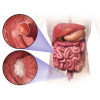
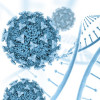
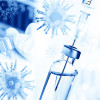
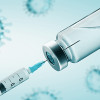
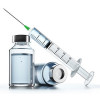






.jpg)






Please login to comment on this article